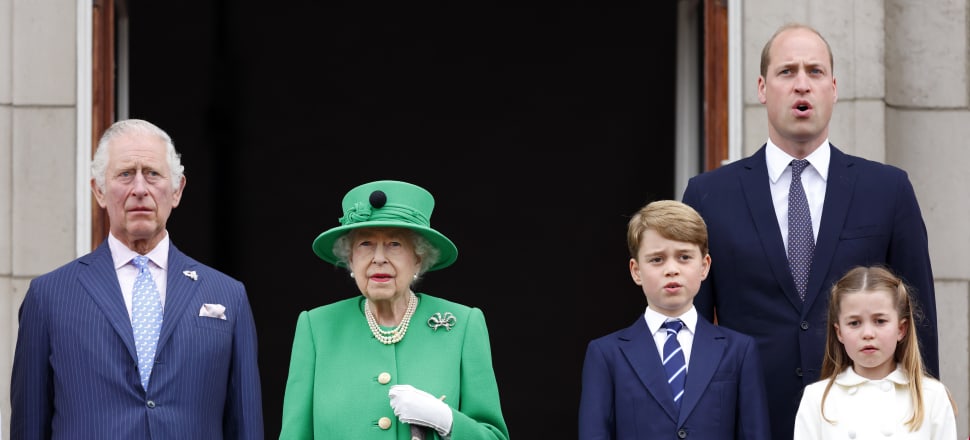
Sarah Jocelyn and Professor Andrew Geddis argue that any constitutional transformation towards a republic would be complex but not impossible
Opinion: Queen Elizabeth II reigned over the Realm of New Zealand (as this country technically is described) as a popular and well-respected monarch for 70 years. For many New Zealanders, she was the only Sovereign, and hence our Head of State, that we have known.
Her death and the accession of King Charles III creates a moment of extreme social significance, as the almost continuous media coverage of the last week attests.
The end of the second Elizabethan era also represents a potential constitutional turning point, as for decades the republican question has been largely avoided out of individual fondness for our now former Queen.
However, her death means the question of whether it is time to abandon the monarchy and become a republic now can be discussed shorn of any assessment of her personal qualities.
The symbolic argument for removing the Sovereign, now Charles III, as our Head of State perhaps is best made out by what is unfolding on our screens at present.
Watching the Queen’s coffin procession to an 11th-century palace some 18,000km away, surrounded by pomp-and-ceremony harking back centuries, makes it abundantly clear this is not “our” monarchy.
It is a specifically British, maybe even English, institution that we are allowed to borrow. Traditions such as the Stone of Destiny and the Royal Company of Archers speak to a culture that is now largely alien to us here in Aotearoa New Zealand.
And while many here are saddened by the former Queen’s passing, it occasions nothing like the highly performative compulsory public mourning that the United Kingdom seems to be gripped by.
Simply put, the concept of having a monarch – and in effect a foreign monarch, at that – formally sitting atop our current constitutional order is all a bit, well, silly. History may have bequeathed us this state of affairs but retaining it is an active choice we really need to justify.
Of course, whether New Zealand should instead become a republic is a question that rests heavily on its predecessor: how could New Zealand become a republic? Despite some claims a wider constitutional overhaul (including calls to adopt a fully written constitution) is necessary to become a republic, New Zealand’s political context likely mandates a softer approach to this constitutional change.
New Zealand traditionally is somewhat passive and avoidant when it comes to constitutional change. Putting aside the voters’ tantrum against elected politicians when adopting our mixed member proportional voting system, alterations to our fundamental institutions and practices of government occur in a relatively slow, cautious, and pragmatic fashion.
This past practice suggests any republican transition will occur through “soft republicanism” – a republican constitutional arrangement that involves only the minimal changes necessary. Aiding this approach is the fact that New Zealand already functions as a “de facto republic”, meaning that in all but formal theory and symbolic trappings New Zealand operates as a republic despite its status as a constitutional monarchy.
The transition, in its simplest form, would require little more than the replacement of King Charles III as Sovereign with a New Zealand appointed Head of State. This Head of State would ideally play a figurehead role similar to that performed by our Governor-General, allowing New Zealand to retain the core parts of the current constitutional structure.
Any constitutional transformation is complex. A fully written and codified constitution would struggle to capture the nuances of the current unwritten constitution (which is heavily reliant on the flexibility of constitutional conventions and the amendability of Acts of Parliament). By comparison, a simpler constitutional transition that in effect elevates the role of Governor-General to that of Head of State would better be able to accommodate these aspects of our system of government.
However, the place and meaning of Te Tiriti o Waitangi – the Treaty of Waitangi adds significant extra consideration to what could otherwise be a relatively simple transition. Te Tiriti – The Treaty is so entangled with the Crown that replacing that concept in our constitutional thinking would require significant consideration. As the monarch is a constitutive part of the Crown, and Te Tiriti – The Treaty is an agreement between the Crown and Māori, our understanding of the nature of the Treaty partners would require some kind of evolution.
Such an evolution is not impossible. Indeed, it may even be desirable as it would force us to consider exactly how we wish to collectively understand ourselves as a political community in this, the 21st century.
Of course, we may instead shy away from such matters because they are “hard” or “too much trouble” and instead continue to pledge fealty to the son of a British woman that we respected (and, thereafter, to his son, and then to his son, and so on). But doing so is a choice, and the current moment is as good a time as any to recognise that we are making it.
Sarah Jocelyn is a Master of Laws candidate at the University of Otago
Professor Andrew Geddis teaches Public Law at the University of Otago







